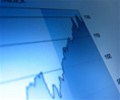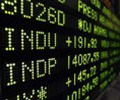
The dollar weakened and stocks were positive on Monday as investors awaited policy announcements in the first hours of Donald Trump’s second presidency and watched interest rate hikes in Japan later in the week.
Trump took the oath of office at noon Eastern Time (1700 GMT), and promised a “new day of American strength” at a rally on Sunday.
He has fueled expectations that he will soon issue a series of executive orders and, in a reminder of his unpredictability, launched a digital token on Friday, which surged above $70 before dipping to around $50 as traders grew jittery.
Monday is a US holiday, so the first response to his inauguration in traditional financial markets will probably be felt in foreign exchange and then in Asian trading on Tuesday.
US equity futures weakened slightly in the Asian session, while the dollar, which has strengthened since September thanks to strong US data and the success of Trump’s political campaign, weakened slightly.
European and FTSE futures were broadly flat. Japan’s Nikkei rose 1.2%.
“I think a lot of things influence pricing,” said Nick Ferres, CIO at Vantage Point Asset Management in Singapore.
“We still have low net equity exposure overall as we think the magnitude and speed of the rise in yields and the dollar is now a challenge for equity valuations.”
The dollar is up more than 8% against the euro since September and was at $1.0306 not far from a two-year high hit last week. But so much is weighing in that some analysts feel the start of a more gradual increase in U.S. tariffs may attract some sellers.
Trump has threatened tariffs of 10% on global imports and 60% on Chinese goods, plus a 25% import surcharge on Canadian and Mexican products, duties that trade experts say would disrupt trade flows, raising costs. , and trigger retaliation.
The Canadian dollar hit a five-year low of C$1.4486 per dollar on Monday. The Mexican peso hit a 2-1/2 year low of 20.94 per dollar on Friday.
Bitcoin fell early in the Asian day but remained above $100,000. The benchmark 10-year Treasury yield closed Friday at 4.61%, up nearly 100 basis points in four months.
CHINA FOCUS
China is in focus as the target of the heaviest potential trade levies. Investors have recently welcomed better-than-expected Chinese growth data and a phone call between Trump and Chinese President Xi Jinping on Friday left both optimistic.
Hong Kong’s Hang Seng rose 2.4% and the Chinese yuan strengthened.
“Basically everyone is waiting for these trade negotiations to start and seeing what kind of stance Xi Jinping takes on Trump,” Ken Peng, head of Asia investment strategy at Citi Wealth told reporters in Singapore at an outlook briefing.
“The relationship between the two parties is very important as a key policy indicator.”
The yuan is expected to slowly adjust to any changes in trade policy and hit a two-week high of 7.3088 against the dollar.
The Australian dollar, which is sensitive to trade flows and the Chinese economy, has fallen from five-year lows and, according to Commonwealth Bank strategist Joe Capurso, could test resistance at $0.6322 if Trump’s policy changes do not match market expectations. It was last at $0.6214.
The Japanese yen strengthened last week on statements from Bank of Japan policymakers that were seen as a hint that an interest rate cut was possible on Friday.
The exchange rate was last slightly stronger at 155.97 per dollar and markets priced the chances of a 25 basis point rate hike at around 80%.
In commodities, gold was at $2,706 an ounce and Brent crude futures slumped on expectations Trump will ease restrictions on Russia’s energy sector in exchange for a ceasefire in Ukraine.
Source: Reuters




